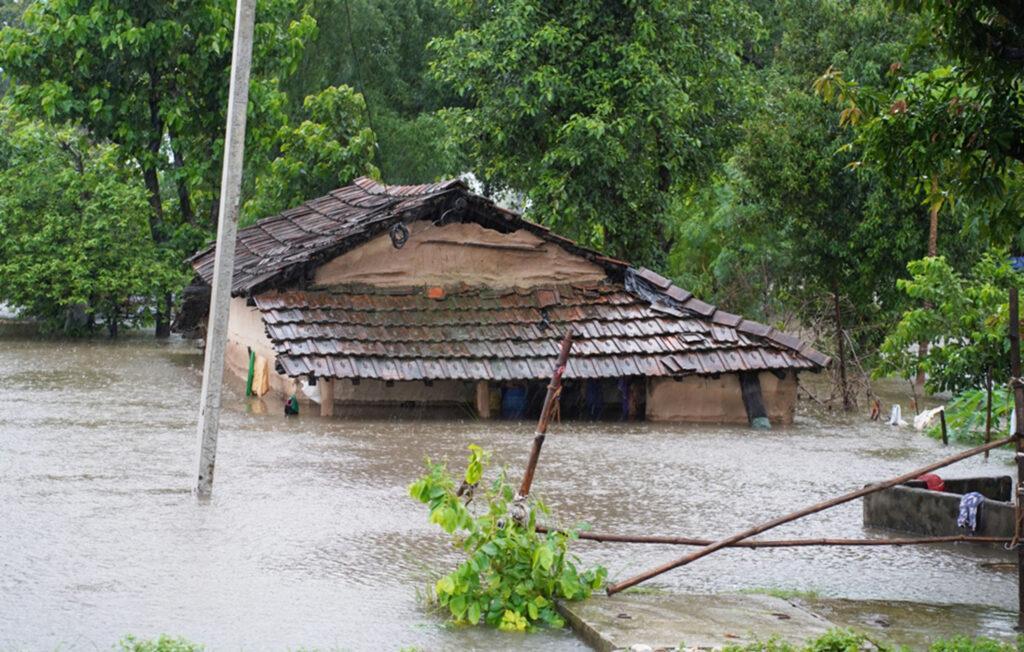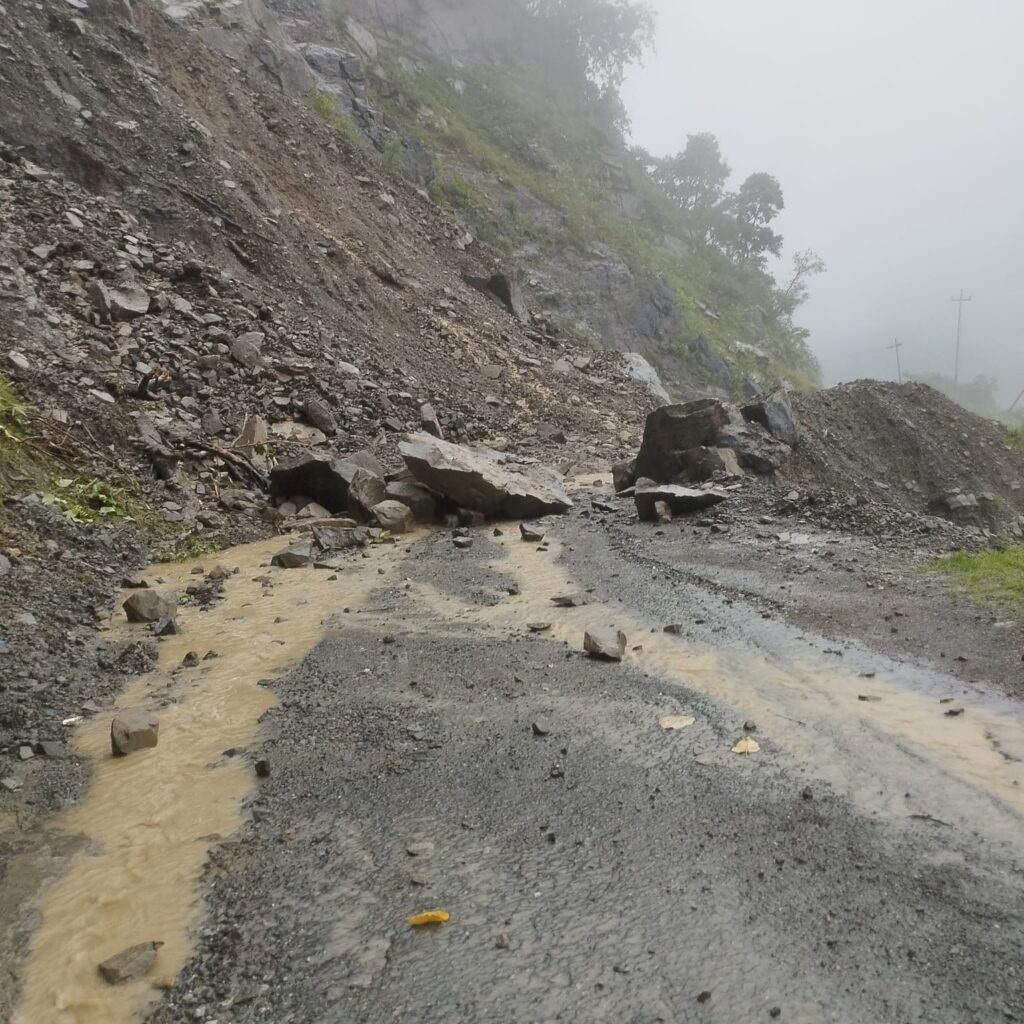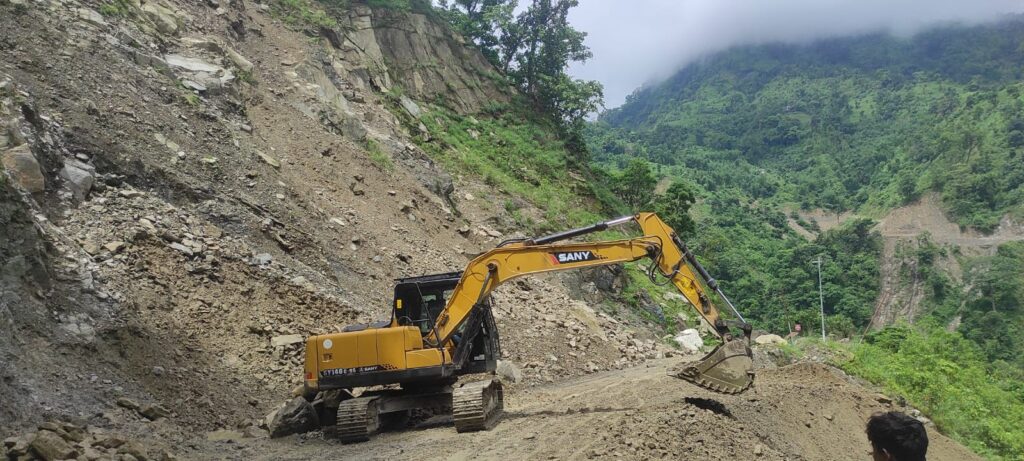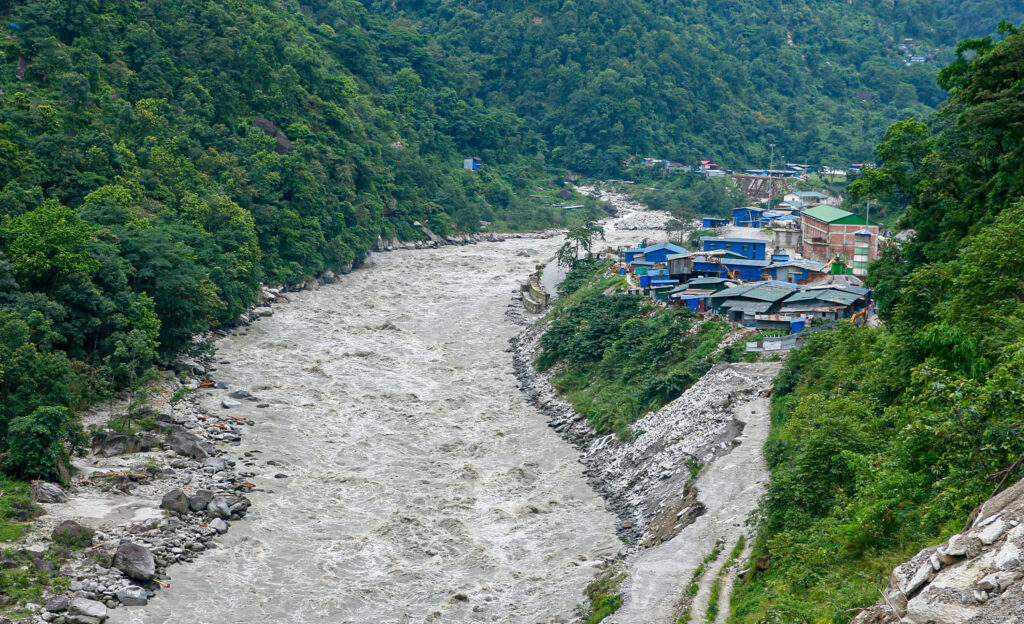Kathmandu: Seventy people have lost their lives due to disasters triggered by incessant rains, including flooding and landslides, according to the Police Headquarters.
Deputy Inspector General Dan Bahadur Karki, the Central Police Spokesperson, reported that since July 9, 80 individuals have died, 86 have been injured, and five are still missing due to these incidents. The continuous rainfall has wreaked havoc across the country, causing extensive damage and loss.
The injured are currently receiving treatment at local hospitals. The disasters have led to 966 incidents of flooding and landslides, damaging 86 houses and killing 335 cattle. The total damage is estimated at Rs 95 million 674 thousand and 250.

Heavy rains have further disrupted life nationwide, and 4,790 police personnel have been mobilized for rescue and relief operations. The Jayaprithvi Highway, connecting Khodpe-Bajhang, has been blocked again due to landslides triggered by the incessant rains, causing significant traffic disruptions.
Inspector Balaram Pandey of Baitadi Police reported that the highway has been blocked at Sadighati, Patan Municipality-8. Continuous rain has hampered efforts to clear the landslide, leaving many passengers stranded. Chief District Officer Bhimkant Sharma urged the public to avoid non-essential travel and advised those in security roles to exercise caution during rescue operations.
In Karnali, transport services have been halted for a week in five districts due to bad weather. Both air and surface transport have been disrupted, with flights to four airports suspended and vehicles unable to travel on the Karnali Highway due to landslides and flooding.

Naula Sing Nepali from Chhayanath Rara Municipality-11 has been unable to travel to Surkhet for urgent business due to the transport suspension. Similarly, Mohan Shahi missed the Teacher Service Commission examination on July 6 as he couldn’t reach the exam center in Surkhet. Many others, including patients and employees needing to travel for treatment and work, have been similarly affected.
Kamal Bahadur Budha, President of the Mugu Chamber of Commerce and Industry, expressed concerns over potential shortages of daily essentials if the road transport remains halted. Engineer Bir Bahadur GT from the Road Division Office in Jumla stated that the Karnali Highway is blocked at 12 locations, and efforts are underway to clear the debris.
Air transport to Rara Airport in Mugu, Simkot in Humla, Jumla Airport, and Jufal Airport in Dolpa has also been suspended due to bad weather, according to Shree Krishna Rijal, Chief of the Civil Aviation Authority of Nepal (CAAN) in Mugu. Rural roads connecting villages and district headquarters remain obstructed as well.
The Baglung section of the Kaligandaki Corridor has been closed for three days due to landslides. The road section remains blocked since Saturday, with the track washed away in Dablyang in Baglung Municipality-10. Landslides have also occurred in Jaimini Municipality-5 Binamare, Jaimini Municipality-1 Theulekhola, and Jimirghat.

Members of the House of Representatives (HoR) have called on the government to promptly provide relief assistance to the disaster-affected communities. They emphasized the need for timely medical care for the injured and proper compensation for those affected by the disasters.
HoR member Thakur Prasad Gaire urged the government to make arrangements for compensation, while Laxmi Tiwari stressed the importance of improving disaster risk management. Bidhya Bhattarai highlighted the urgent need to prevent avoidable deaths, citing the death of a child in Lamachaur of Pokhara due to poor sewage management.
Achyut Prasad Mainali demanded free treatment for the injured and timely compensation for survivors. Kiran Kumar Shah criticized the government’s lack of robust preparations for dealing with potential landslides and floods, urging a focus on response and preparation efforts. Basudev Ghimire advised concentrating efforts on disaster management and rehabilitation.

The government faces mounting pressure to address the widespread devastation and provide effective disaster response to safeguard the affected communities.















